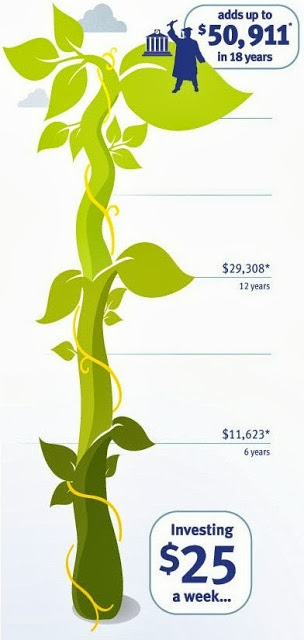Do you remember those cute birthday cards that you got from your aunts and uncles or grandparents that had coins attached to the inside of them? Some even had slots for coins, I remember getting one with an image of an apple tree and each apple was a coin. Well, how many of you now as parents would think to give a birthday card like that to your children or nieces and nephews? If not, why not?
I think my biggest birthday haul was five dollars when I was young. And usually, my parents let me take that money and spend it on whatever five dollars could get me. I was so happy with that responsibility of choosing what I could do with the money!
Flash forward a decade or so, and my father took me and my sister to the bank to open a bank account. I still have my first bank statement book as a reminder when I began this process with my father and how a little amount grew with time.
I can’t say all the money I received from family and friends always went into the bank account when I was young. But I can tell you that at the same time my father was teaching me about money, he was already contributing to another account for my sister and me. It was always a small amount, but it was steady, and with time, that amount grew into something that began our educational fund for college.
When I was approached to write about the RBC registered educational savings plans (RESP), I took it as an opportunity to write about something I think may go overlooked from the get go. No matter what, saving is hard. Saving for your children when they are just babies seems almost unnecessary.
One of the first things you think about when having a baby is “how can we afford this?” I know for me, my mind went to baby gear, furniture, a minivan, moving into a house one day….it seemed daunting. And I can honestly say that in those moments, I wasn’t thinking about saving for my baby’s college education. But my husband and I looked into RESPs right away. And you know what? I am so grateful we did. Have you taken a look at the cost of education for children to reach university these days? Post-secondary education has actually increased at three times the rate of inflation since 1990.
Here are the facts about RESPs
- Contributing small amounts each week can grow into a big amount once your child reaches college (for example $25 a week can grow to $50,000 in 18 years – crazy!)
- The government will contribute an additional 20% for your child’s savings (up to $500 a year for a total of $7200!) Yes, that is free money, people.
- This applies to every child, so in order to fully take advantage of free government money, it makes sense to save as much as you can for each of your children.
- The funds you save are not taxed on, as long as the funds remain in the plan.
- You can choose to invest in individual or family funds (which means the children can share the funds depending what is needed for their next step in post-secondary education).
- Save automatically once you set it up with the RBC-RESP-Matic system (less to think about).
- Anyone can open an RESP account for a child (grandparents, aunts, uncles, etc.).
- There is no charge to open and RESP account and no administration fees.
- If your child doesn’t end up using the funds, the contributions and earnings you made can be used to fund your RRSP.
To find out more about RESPs with RBC, click here. And to find out how to set up an RESP-Matic, click here.
- Start small, but by all means, start – if you can sock away just a few dollars a day per child, think of what it can become in a short while.
- Make your coffees at home (that $5 latte may taste good going down, but it will leave a bitter taste in your mouth knowing it could grow in savings for your kids).
- Make your own lunches – same thing applies here, leftovers and great sandwiches will lead way to savings down the road.
- Watch for sales – if some items on my grocery list are not on sale, I will not buy those items for the week, it’s that simple. Three children means we go through a lot of food, so sometimes waiting on some favourites for a week or two makes sense (psst, my kids appreciate them more that way too).
- Reduce, reuse, recycle – in all aspects of life whether it’s clothing, craft materials, leftovers that become new meals, I try as much as I can not to waste.
- If family asks what your child would like for their birthday or any other holiday, consider asking for a contribution to their RESP. Because let’s be honest, that third or fourth or fifth toy from family only lasts so long, but the savings can create something more valuable in the end.
Do you have any tried and true tips for saving for your family? I’d love to hear about them in the comments below.

